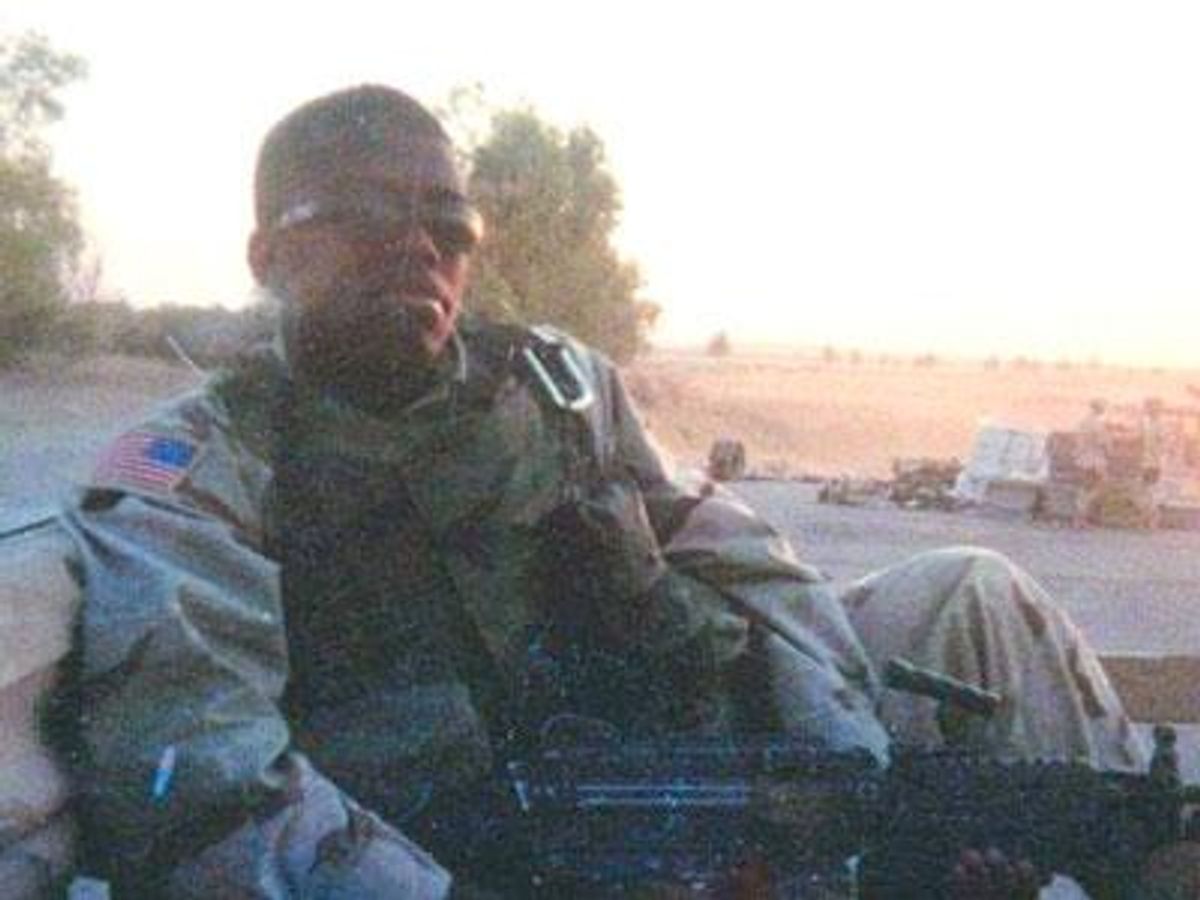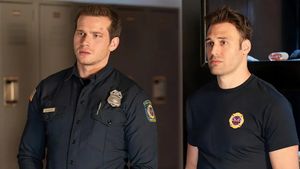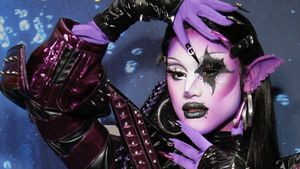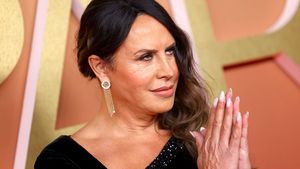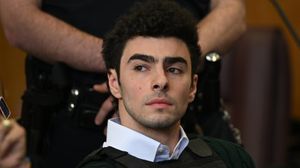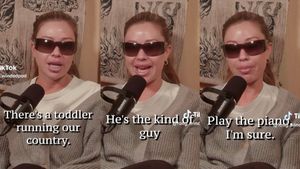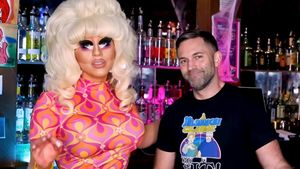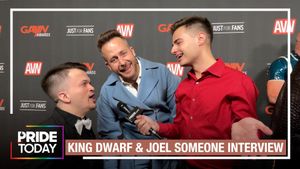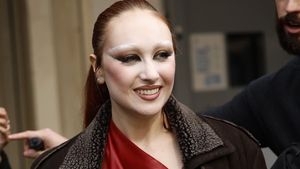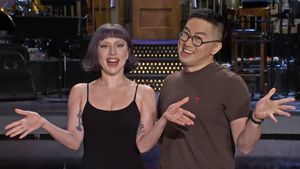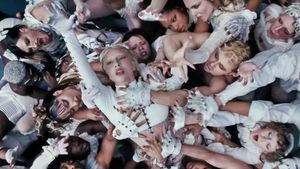
Black, LGBT, American.
For Rob Smith, a former infantry soldier in the U.S. Army during "don't ask, don't tell," there's no doubt a lot of complication to that identity.
By the time DADT met its repeal, I had come to know Smith as an intelligent voice on being LGBT in the military, but several years prior, he was just a 17-year-old boy, scraping by as the only black soldier at his boot camp, and getting picked on for it. "It was harsh mentally and physically. The racism I experienced was crazy," Smith says. "It was a tough area to revisit for me, as I was writing about it." But he does in a way that makes you keep reading. Smith's new memoir, Closets, Combat, and Coming Out: Coming of Age As A Gay Man In The "Don't Ask, Don't Tell" Army, starts from the moment that he decided to join, convincing his mother that he needed to get out of his tiny town in Ohio and possibly afford higher education.
In one of the first inklings he was gay, he was in fact enticed by a gorgeous recruiter who sold young, lonely Smith dreams of camping and hanging out outdoors with new buddies.
He ended up being too pudgy to run a solid two miles, too young to stick up for himself, perhaps not "masculine" enough for his peers, and the only black kid at boot camp, all of which made him the target of plenty of ridicule.
His account feels so honest, and Smith admits that writing and reading the first third of his book still makes him cringe. Yet, he powered through training, leading him to toughen up in the Army's infantry, one of the military's most demanding jobs. He initially wasn't in physically great shape, but he was smart, and it turned out Smith could shoot.
"In writing this," Smith says, "I wanted to explore what it means to be a gay man in general, and especially, what does it mean to be gay in this hyper-masculine, homophobic institution that is the United States military, in the infantry, which is the most male, and the the hardest job in the military -- it's not even open to women. I went to the most male of the male."
Smith began to figure out his own identity while in the Army in the very beginning of his official career. Right before he flew off to his first assignment, Smith picked up a Rolling Stone profile on an Army private who was murdered because he fell in love with a transgender woman. It was Pvt. First Class Barry Winchell.
"I read that literally right before I flew out to my first duty station, and it scared the hell out of me," he says. "That's when I became aware of DADT. They talked a lot about the ban, and that you would get kicked out and lose everything."
Not only would Smith be kicked out, but so much was at stake: he would lose his chances at the G.I. Bill, the very reason he had joined in the first place, other than the escape from his small town. Had Smith been kicked out of the military under "don't ask, don't tell," he would have been just another statistic. People of color were disproportionately discharged from the military under "don't ask, don't tell." For example, in 2008, people of color made up 29 percent of the entire military population, but accounted for 45 percent of DADT-related discharges. Perhaps that's because "don't ask, don't tell" was randomly enforced. If you had a commanding officer who was OK ignoring the fact that you had a partner, or that you were attracted to people of the same sex, then you were clear. But if you didn't, you had to be extremely cautious.
Smith told me of an instance when he was off base at a club in Colorado Springs, of all places, that had a gay night, where he often held court. He had to be careful, because after a certain hour, gay night ended and anyone could funnel in, including his colleagues and commanders. One night he lost track of time and realized, as he was making out with a guy on the dance floor, that one of his squad leaders was there. Actually, they bumped right into each other. He left the bar, and for the next 48 hours, engaged in a massive freakout. Who wouldn't?
"I went back to work on Monday, and that soldier never said anything to anybody," Smith said. "That was a really scary moment. I could have lost everything."
Eventually, Smith shipped off to Iraq at 20 years old. He says he thought about death in ways that no one that age should be forced to think about every day. "It was just a constant tight-rope walk," he says. "I was constantly on edge. I was a ground soldier in the infantry, and we would just get instantly called to go on missions. They would just come out of nowhere, and it was a very scary time...The gay thing really took a back seat to staying alive, and keeping my job, and making sure I was protecting the people to my right and to my left."
Meanwhile at home as the war escalated, the face of LGBT service members started to become more important in the fight to repeal the ban instituted the decade prior. However, aside from a handful of activists, the face of "don't ask, don't tell" repeal rarely resembled Smith's.
"A lot of the stories that we see from gay veterans often are from captains, or lieutenants, and their lives are just so much different from the lives of the people in enlisted military," he says. Part of the reason he wanted to write his book was because "this image that we have of an American soldier in our mind is always this grizzled white dude. We always see that image, and I was really shocked that there were no black veterans who came forward to tell their stories about Iraq in this way. Our stories are valid as well."
On the front lines, it seemed that those differences between us that are all too striking here at home were of little importance to the Iraqi people.
"Sometimes in America, as a black person, you don't have the experience of simply being American," Smith says. "You're African-American. There's always something after it, or before it. But overseas, you're representing America, and wearing this American uniform, with an American flag on my right shoulder. Overseas, I am seen as an American before I'm seen as anything before us."
I can't pretend I'll ever know what it's like to be in combat, but I have had the privilege of being outside of the United States as a traveler. I will say, being a black and Latina woman who falls anywhere in the LGBT spectrum -- with all of those groups having faced lengthy histories of discrimination and are even still met by challenges -- it definitely feels weird to simply tell people that "I am an American."
Some of my ancestors came here unwillingly, and some came here looking for opportunities. My grandmothers didn't have time to be feminist activists; they were already working hard-fought jobs to put food on the table. Yet somehow being an American is part of our identities.
As Rob Smith knows, being an American is complicated. But that's what makes it great, if not at least interesting.
MICHELLE GARCIA is The Advocate's managing editor. Follow her on Twitter @MzMichGarcia
